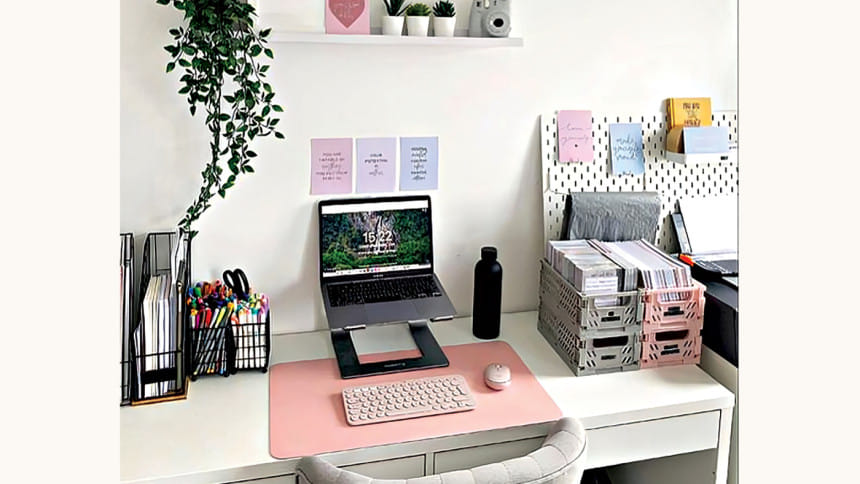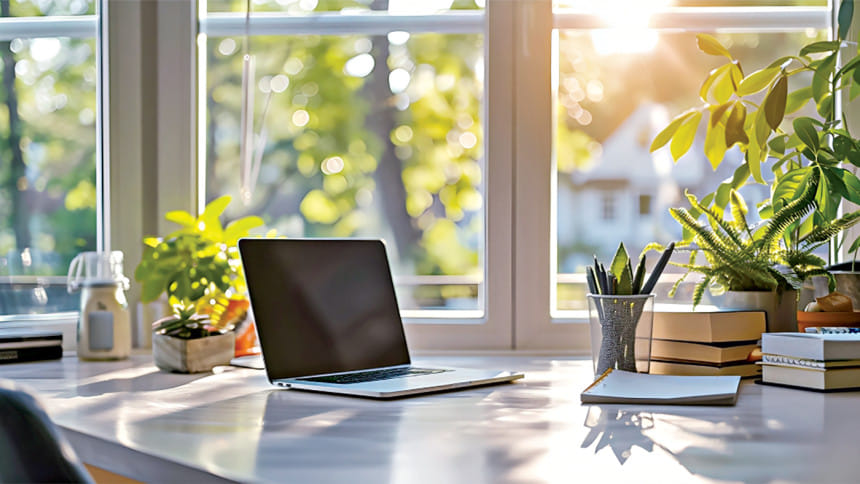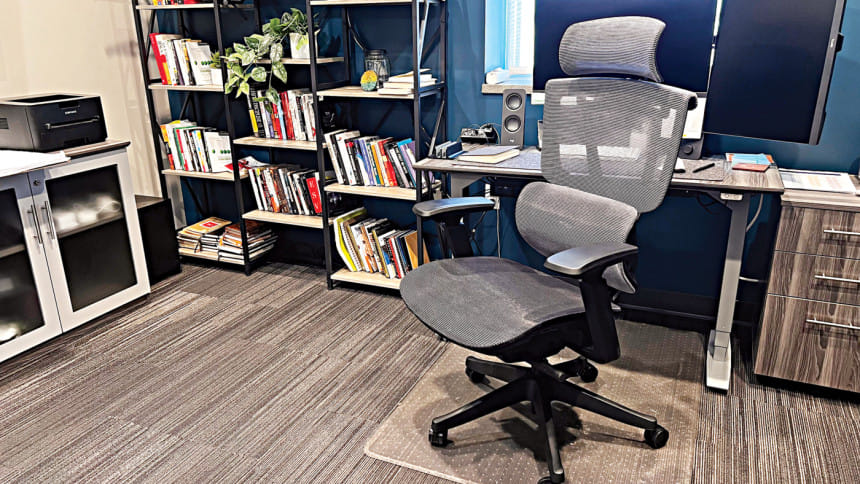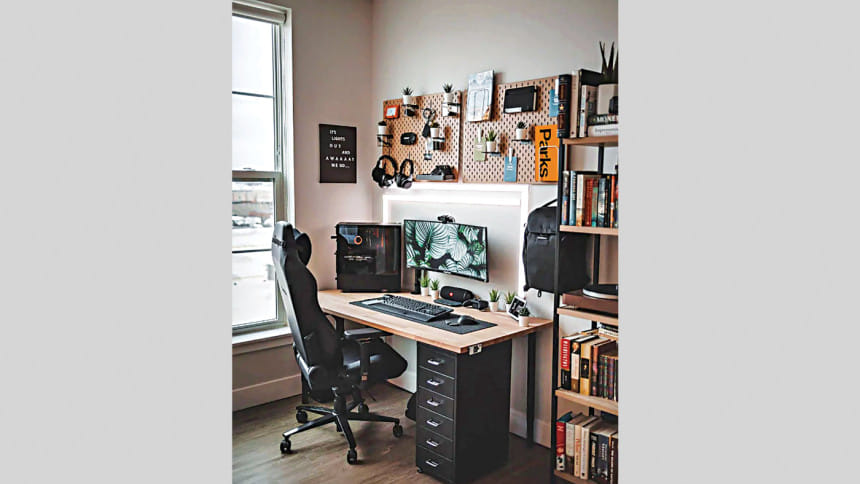A study-friendly nook to boost productivity

Did you know that the average person spends about 6.5 hours a day sitting at a desk, yet only 3 of those hours are actually productive? According to researchers, one of the biggest culprits behind this productivity gap is the environment itself. Whether it's a flickering light, a noisy neighbour, or a chair that feels like it was designed by a medieval torturer, our surroundings have a sneaky way of sabotaging our focus.
Whether you are a student, a professional, or someone who enjoys learning at home, curating an efficient study environment through thoughtful interior design can significantly impact your ability to absorb and retain information. The right interior design can transform any corner of your home into a study haven.
Pick the Right Location
Creating a study-friendly space starts with choosing the right location—a quiet, distraction-free area that feels separate from daily activities. If a spare room isn't an option, consider repurposing a corner of your living room, bedroom, or even a well-organized closet—any spot that feels separate from the hustle and bustle of your home's daily activities. Prioritize areas with access to natural light, as studies reveal that exposure to natural light not only boosts mood by 40% and reduces eye strain but also regulates circadian rhythms, enhancing alertness and cognitive performance. Position your desk near a window to take advantage of this, but ensure the sunlight doesn't create glare on your screen, which can cause discomfort. Additionally, avoid high-traffic areas like the kitchen or living room, as noise pollution can impair memory retention and focus. Consider using noise-canceling headphones or adding soundproofing elements like rugs, curtains, or even bookshelves, which can absorb sound and create a quieter, more serene study zone.

PrioritiSe Comfort
When you're working or studying for long hours, creating a comfortable study nook can make all the difference. Start with a desk that fits your needs—go for a larger one if you need space for multiple monitors or books, or try a wall-mounted or foldable desk if you're tight on space. Pair it with an ergonomic chair that has lumbar support, adjustable height, and armrests to keep your back and neck happy. Make sure your feet rest flat on the floor, with your knees at a 90-degree angle, and adjust the desk height so your forearms can rest comfortably. If you're using a laptop, consider an adjustable stand to avoid craning your neck.

Keep it Clutter-free
Research shows that a quaint, clutter-free environment can significantly boost concentration and cognitive performance. This is because our brains are wired to process visual information constantly, and a cluttered or chaotic space can create "cognitive overload," making it harder to focus. A study from Princeton University found that physical clutter competes for your attention, reducing your ability to concentrate and increasing stress levels. On the other hand, a serene, organized study setup—think soft lighting, minimal distractions, and perhaps a plant or two—can create a calming atmosphere that enhances focus and productivity.
OptimiSe Lighting
Lighting is a game-changer when it comes to creating a study-friendly space. Poor lighting can leave you with tired eyes, headaches, and a serious lack of focus. To get it right, layer your lighting using a ceiling light for overall brightness, a desk lamp for focused tasks, and maybe a soft accent light to add a cozy vibe. Opt for adjustable lamps that let you switch between cool white light and warmer tones. While cool lights are perfect for concentration, warmer ones are great for relaxation.

Create a Cozy Atmosphere
The colors and textures in your study space can have a big impact on your mood and productivity. Lighter shades like soft greens, blues, and yellows are known to boost creativity and focus, while warm textiles like throw blankets and cushions add a cozy, inviting touch. To bring life to your space, incorporate plants—they not only look great but also improve air quality and create a calming vibe. Opt for low-maintenance options like succulents or peace lilies that thrive indoors with minimal care. Together, these elements can transform your study area into a serene and inspiring retreat.
Whether you have an entire room dedicated to studying or just a small corner in your home, a functional study set-up not only enhances productivity but also makes work or study sessions enjoyable.

 For all latest news, follow The Daily Star's Google News channel.
For all latest news, follow The Daily Star's Google News channel. 



Comments